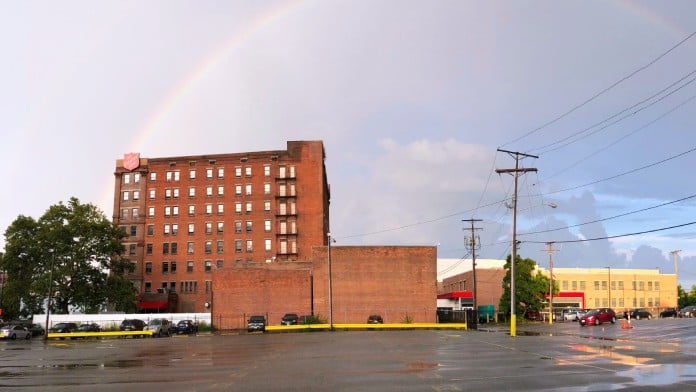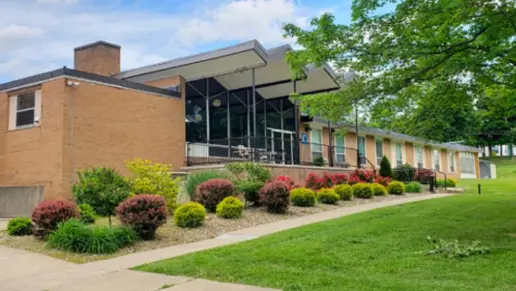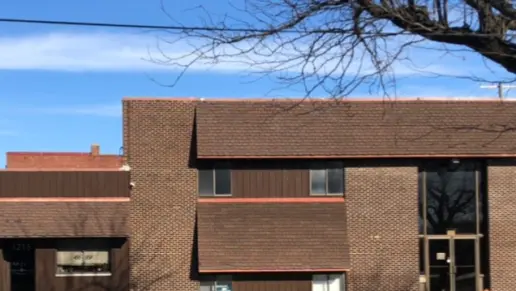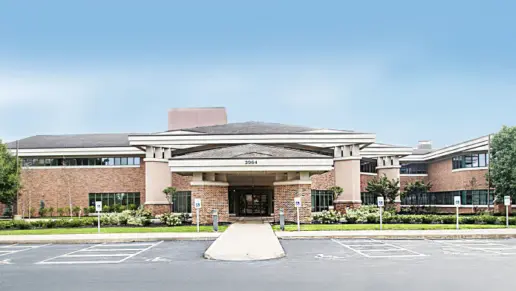About Harbor Light Complex
The Harbor Light Complex in Cleveland, Ohio, run by The Salvation Army, helps men and women take steps toward recovery from substance use disorders. They provide drug and alcohol rehab in an outpatient setting, all within a city known for affordable living, strong community and access to some of the best healthcare facilities in the country.
While they accept Medicaid, they don’t work with private insurance. Whether you have Medicaid or not, you’ll still qualify for treatment at no cost. The Salvation Army never charges clients for services.
The Salvation Army, a faith based nonprofit, has been helping communities worldwide since 1865 with housing, food, and addiction recovery services. In Cleveland, Harbor Light has been a cornerstone since 1949. They’ve grown from a 10-bed program for homeless men with alcoholism to multiple campuses supporting adults with substance use disorders.
Their addiction treatment services are certified by the Commission on Accreditation of Rehabilitation Facilities (CARF) and the Ohio Mental Health and Addiction Services Department (OMHAS).
Certifications are something to pay attention to because it means a drug and alcohol rehab facility has passed a thorough and intense review. The review ensures the facility meets quality standards.
Many clients need medically supervised detox before starting rehab, especially for alcohol or opioid addiction. If detox is necessary then short term residential care is available through their withdrawal management program. If you’ve already completed detox then you can stay in temporary housing while you plan your next step in treatment.
Their intensive outpatient program (IOP) is a great option for people who need more support but still want to live at home. IOP involves a few hours of group therapy a few days a week. Treatment lasts for six weeks and includes 18 group therapy sessions. You’ll also attend community support meetings like AA, NA, SMART recovery and other faith based groups twice a week.
SMART Recovery is a unique feature of their program. It’s a science based, self empowering approach to beating addiction. You’ll learn practical tools for recovery in a supportive community of peers and professionals. Whether in person or online, you’ll create your own recovery plan.
Facility Overview
Rehab Score
Gallery

Location
Other Forms of Payment
Self-pay involves paying for treatment out of your own pocket. You can use savings or credit, get a personal loan, or receive help from family and friends to fund your treatment. If you don't have insurance or your insurance plan doesn't cover a specific program, self-pay can help ensure you still get the care you need.
Financial aid can take many forms. Centers may have grants or scholarships available to clients who meet eligibility requirements. Programs that receive SAMHSA grants may have financial aid available for those who need treatment as well. Grants and scholarships can help you pai for treatment without having to repay.
Sliding scale payments are based on a client's income and family size. The goal is to make treatment affordable to everyone. By taking these factors into account, addiction recovery care providers help ensure that your treatment does not become a financial burden to you or your family, eliminating one barrier to care.
Medicare is a federal program that provides health insurance for those 65 and older. It also serves people under 65 with chronic and disabling health challenges. To use Medicare for addiction treatment you need to find a program that accepts Medicare and is in network with your plan. Out of pocket costs and preauthorization requirements vary, so always check with your provider.
Medicaid is a state based program that helps lower-income individuals and families pay for healthcare. Medicaid covers addiction treatment so those enrolled can use their coverage to pay for rehab. When a program accepts Medicaid the client often pays very little or nothing out of their own pocket.
Addiction Treatments
Levels of Care
Treatments
The goal of treatment for alcoholism is abstinence. Those with poor social support, poor motivation, or psychiatric disorders tend to relapse within a few years of treatment. For these people, success is measured by longer periods of abstinence, reduced use of alcohol, better health, and improved social functioning. Recovery and Maintenance are usually based on 12 step programs and AA meetings.
Drug rehab in Ohio provides comprehensive treatment to address the physical and psychological needs of those struggling with substance use disorders. This may involve inpatient and/or outpatient care.
Many of those suffering from addiction also suffer from mental or emotional illnesses like schizophrenia, bipolar disorder, depression, or anxiety disorders. Rehab and other substance abuse facilities treating those with a dual diagnosis or co-occurring disorder administer psychiatric treatment to address the person's mental health issue in addition to drug and alcohol rehabilitation.
Opioid rehabs specialize in supporting those recovering from opioid addiction. They treat those suffering from addiction to illegal opioids like heroin, as well as prescription drugs like oxycodone. These centers typically combine both physical as well as mental and emotional support to help stop addiction. Physical support often includes medical detox and subsequent medical support (including medication), and mental support includes in-depth therapy to address the underlying causes of addiction.
Substance rehabs focus on helping individuals recover from substance abuse, including alcohol and drug addiction (both illegal and prescription drugs). They often include the opportunity to engage in both individual as well as group therapy.
Programs



Clinical Services
Group therapy is any therapeutic work that happens in a group (not one-on-one). There are a number of different group therapy modalities, including support groups, experiential therapy, psycho-education, and more. Group therapy involves treatment as well as processing interaction between group members.
In individual therapy, a patient meets one-on-one with a trained psychologist or counselor. Therapy is a pivotal part of effective substance abuse treatment, as it often covers root causes of addiction, including challenges faced by the patient in their social, family, and work/school life.
Therapists who apply motivational interviewing in Ohio don't try to confront clients or force advice onto them. Instead, they listen and come alongside clients to help them explore why and how they might decide to make changes for themselves.
Life skills trainings involve all the skills a person must have in order to function successfully in the world. These include time management, career guidance, money management, and effective communication. Truly successful addiction recovery is based on the ability to not only live substance-free, but to thrive. Life skills teaches the practical necessities of functioning in society, which sets clients up for success in life, and therefore sobriety.
Amenities
-
Residential Setting
-
Private Rooms
Accreditations

The Commission on Accreditation of Rehabilitation Facilities (CARF) is a non-profit organization that specifically accredits rehab organizations. Founded in 1966, CARF's, mission is to help service providers like rehab facilities maintain high standards of care.
CARF Accreditation: Yes

State Licenses are permits issued by government agencies that allow rehab organizations to conduct business legally within a certain geographical area. Typically, the kind of program a rehab facility offers, along with its physical location, determines which licenses are required to operate legally.
State License: Ohio
Contact Information
1710 Prospect Avenue
Cleveland, OH 44115


